When the National Security law was implemented about one year ago, the HK government kept repeating that its scope was limited and those concerned were few. One year later, it seems the scope is ever-expanding and the tentaculous reach of this law proved itself once more when the tabloid “Apple Daily” was forced to shut down after seeing journalists arrested and its assets frozen. It took less than a week to see how the fall of the Apple to its its doom.
The arrests of Jimmy Lai
Less than one year ago, the arrest of Jimmy Lai under a charge of “fraud”, had already caused an outpour of support for the beleaguered tycoon. People rushed to buy the paper, the shares of Next Digital, the company owning Apple Daily, and even started impromptu protests in Mongkok.

At the time, the National Security Law had already been implemented for one year, and hence, many protesters just held symbols such as an apple, or even just copies of Apple Daily.

But those arrests were only a prelude. Later, in November 2020, a second arrest sent Jimmy Lai in prison under the National Security Law. Although being granted bail with extremely rigid conditions, the Court of Final Appeal granted the appeal of the Department of Justice and sent Mr. Lai back under bars. In a subsequent trial linked to an unauthorized march in August 2019, Mr. Lai was sentenced to 14 months in jail.

The onslaught continues
In June, a series of arrest targeted the members of the redaction of Apple Daily, arrested and charged under claims of “collusion with foreign powers”, for allegedly having penned columns calling for international sanctions against China and Hong Kong.
Being arrested under the National Security Law, the journalists were denied bail, of course, and meanwhile, the paper’s assets were frozen, making it all but impossible to continue publishing the paper.
While initially, the team of Apple Daily wished to avoid their downfall too early, and gave a deadline until Friday 25 June 2021, alleging otherwise they would be unable to pay their staff. This caused a flux of resignation of staff fleeing the impending doom. Later, however, Apple Daily admitted they misled their staff (likely to avoid having to pay severance).
On 23 June 2021, yet another editorialist of the beleaguered tabloid was arrested under the same charge, prompting the redaction to announce that it would be ceasing publication of the paper on the very next day. The Apple had finally fallen.
A sad mourning
That evening, as the rain started to fall, a few die hard fans of the paper grouped in front of the offices of Apple Daily, together with some press. Being located in the remote Tseung Kwan O, getting there takes some effort.
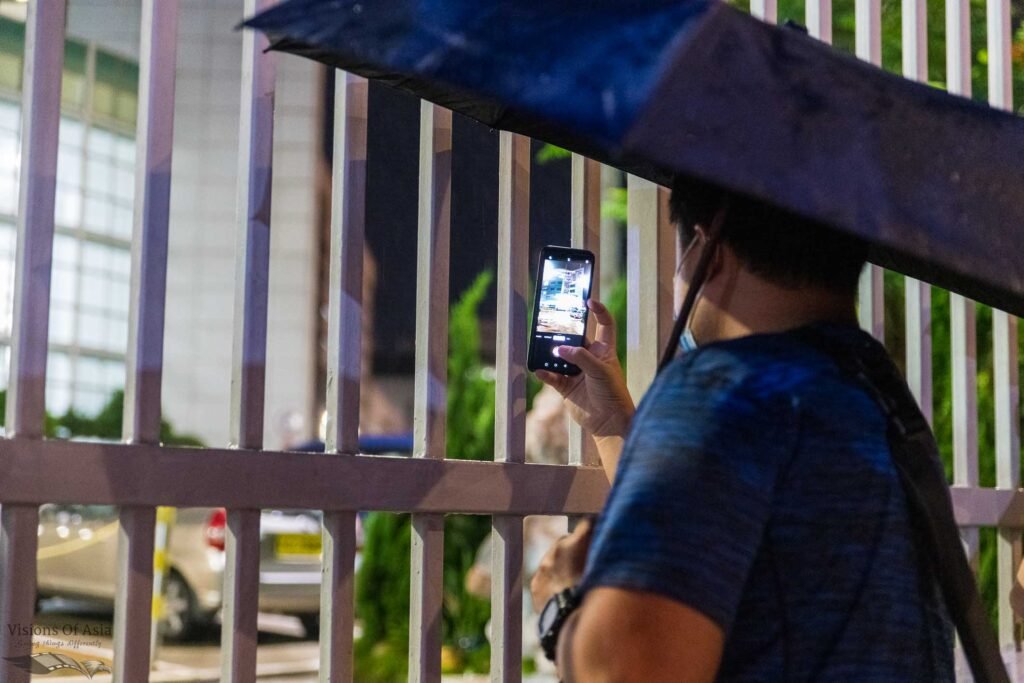
Within the offices, a few staff took a last smoke together as they contemplated with melancholy their future after the closure of the paper.

On the windows of the paper, someone had affixed a printed message to one of the windows which read “Thank you for the support. We love you”.
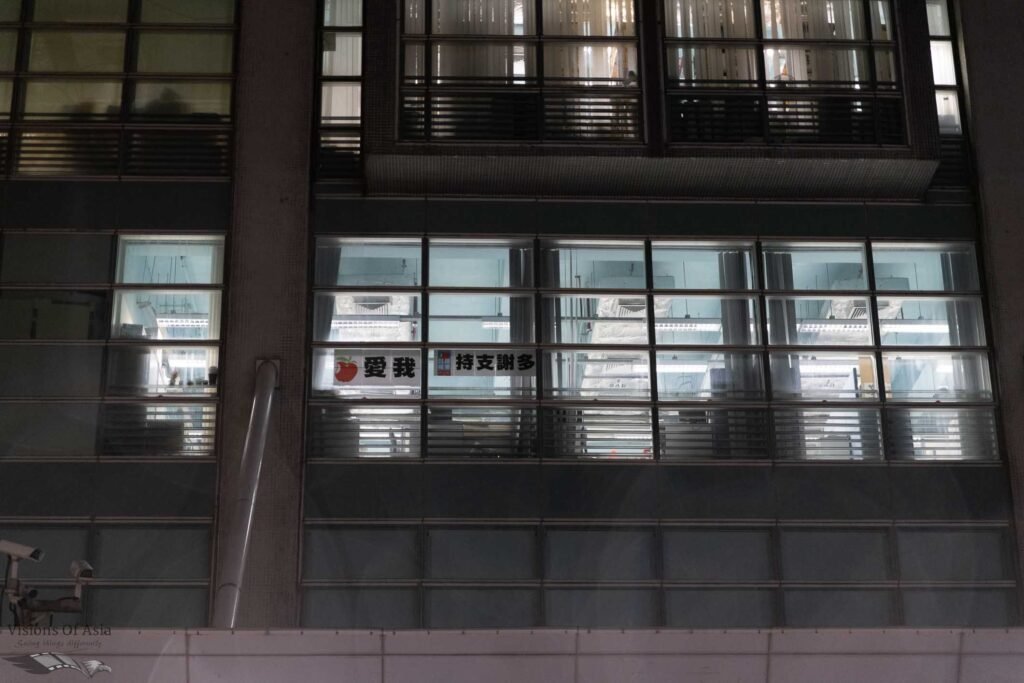
A small group of supporters stood around, taking the last pictures of the newspaper offices. There were few there, but as the hour of the final closure neared, more would join them.

From time to time, staff left on board the company bus shuttle. They would still flash a “V” sign through the window, to show us they were still fighting.

The Final Hours
After being in Tseung Kwan O, the next destination, quite obviously, was to wait and see the popular reaction when the last print copy of the paper would hit the newsstands.
The one place which always received the first copies of Apple Daily was a newspaper stand located on Argyle street, in Mongkok. A queue starting forming up in front of the newsstand already two hours before midnight.

As time passed, the queue starting growing, and quickly, people lined up until the next street.
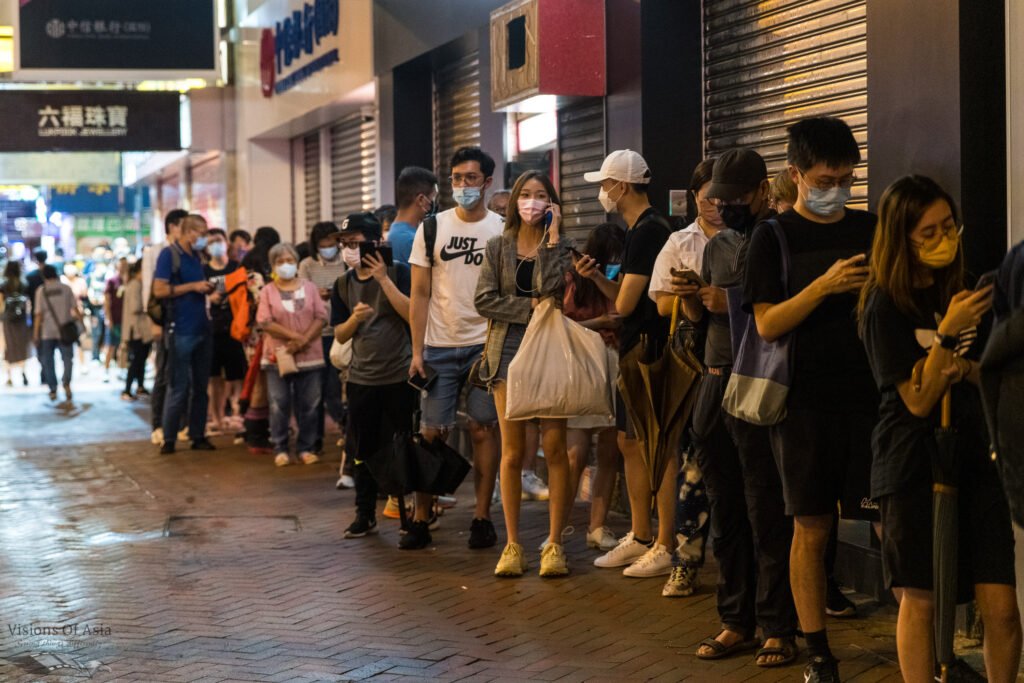
Meanwhile, in Tseung Kwan O, the few isolated supporters of the beginning of the evening had received the support of hundreds of others. They started chanting slogans and trying to express their support to the paper.
In Mongkok, instead, the queue had now expanded and extended into a side street.

Selfies were also very much in order, to keep a memory of what many expected to be a historic occasion.
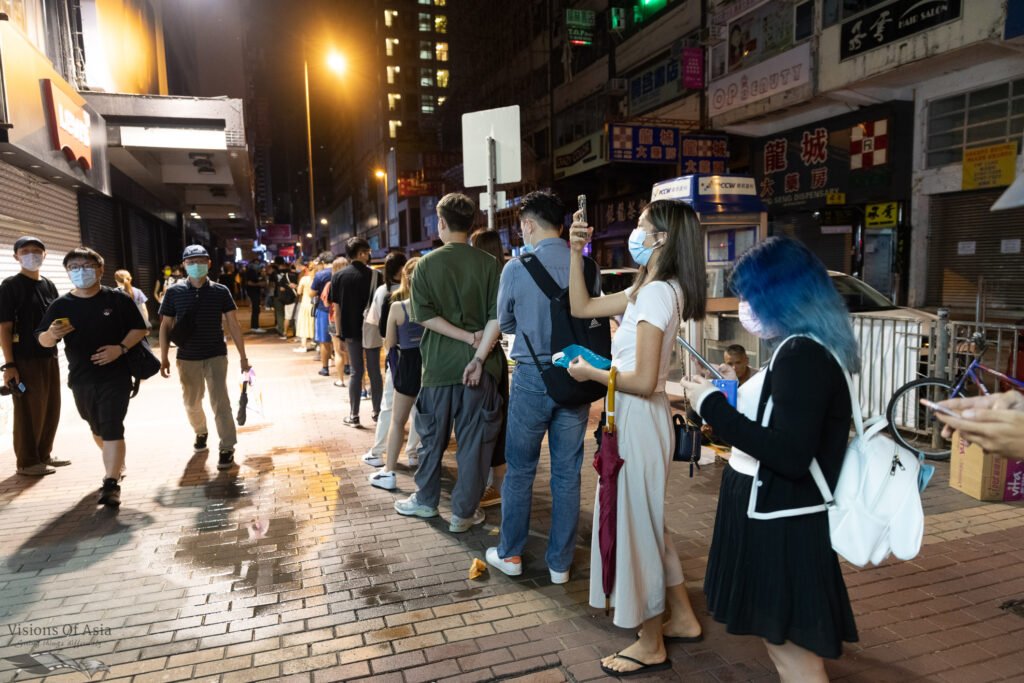
Many people had come prepared and were either equipped with their own stools or had brought some cup noodles to support themselves through the wait.

Although it was a sad occasion, and the fall of the Apple was a dire prediction of the upcoming few months, most people were proud to be waiting in line, conscious of the historic moment.
The fall of the Apple
Finally, at 12.30 (instead of 1.30), the bunches of papers arrived to the newsstand in what cannot be described as other than a media scrum.
The newspaper arrived, the journalists rushed around the delivery persons, and the newsstand patiently allowed reporters to take their photos, before handing over the paper to those who had queued for hours.

As they grabbed the last copies of Apple Daily, many customers used it as their last protest, with the cover of the paper as their now disappeared emblem.
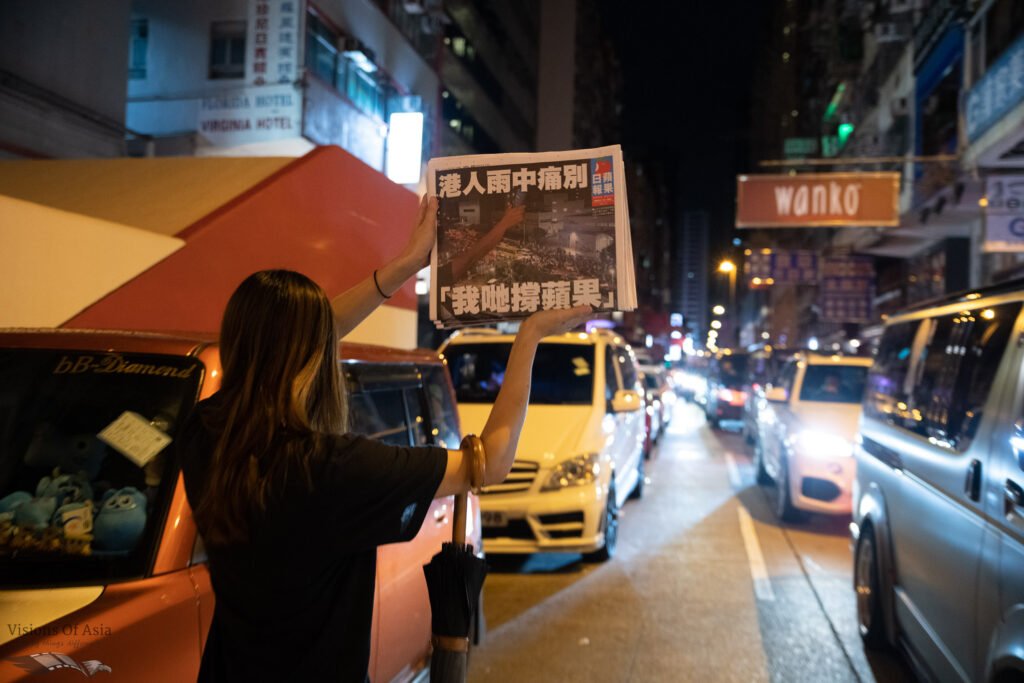
Others were more keen on taking pictures of the last copy to post on social media or send to friends.
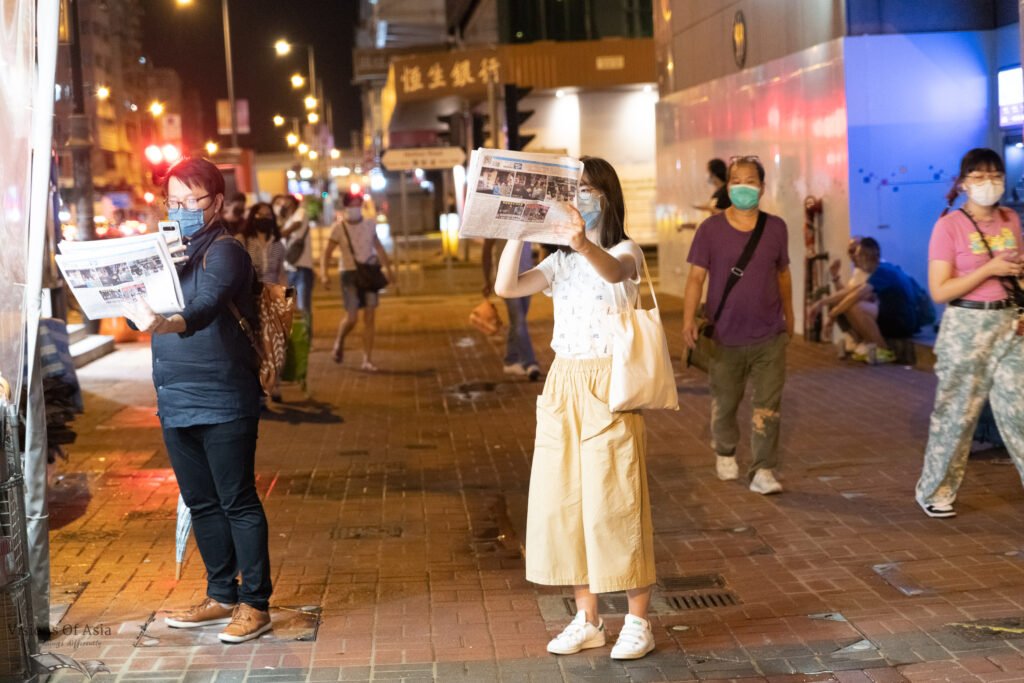
As the night went on, many went to sleep heavy-hearted by the disappearance of one of the last symbols of the freedom of speech that was so valued in Hong Kong.
Unsurprisingly, not even a month later, the police rearrested the journalists it had previously arrested, charged them under the National Security Law, and had them shipped to jail without bail.
The next step, which took place almost at the same time, involved arresting speech therapists under charges of “sedition” for writing a children’s book allegorically representing the protests as a struggle between sheep and wolves. The Fall of the Apple was, unfortunately, only an omen for what is to come, with the Government and China announcing further regulations on media and social media to combat “fake news”.

